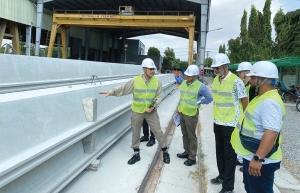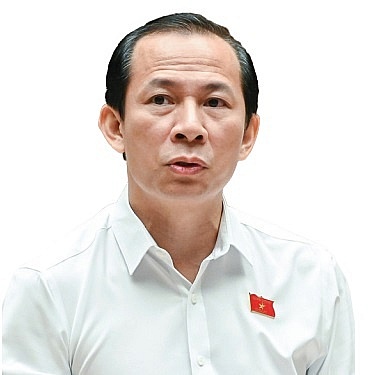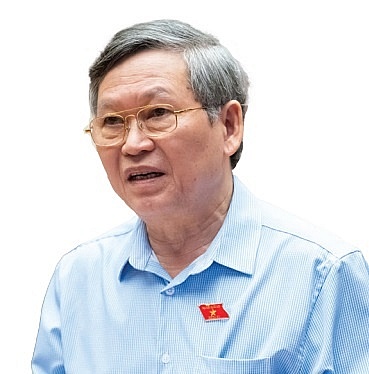Union rights closer for non-nationals
In a significant move towards inclusivity and international alignment, Vietnam is poised to allow foreign employees to join grassroots trade unions (TUs) at their workplaces, marking a shift in labour rights. This policy amendment is intended to extend labour protections to expatriate workers in Vietnam while enhancing the country’s compliance with international labour standards.
The National Assembly Standing Committee reported at the eighth session of the National Assembly (NA) that, after careful consideration of feedback from lawmakers and other authorised bodies, it directed amendments to the Law on Trade Unions. Under Article 5 of the amended law, foreign employees with valid labour contracts of at least 12 months will have the right to join grassroots TUs in Vietnam.
This right, however, comes with limitations. Foreign employees will not be permitted to establish TUs, serve in union leadership roles, or engage in union activities beyond the grassroots level. Instead, their participation will be restricted to existing grassroots unions within their workplaces, ensuring a controlled integration of foreign employees into the union structure.
 |
| Union rights closer for non-nationals (illustration photo/ Source: freepik.com) |
Draft amendments to introduce possible options for Article 5 were previously discussed at the NA in June.
This legislative change aligns with the Party’s strategic goals to reform Vietnam’s TU framework, addressing the nation’s growing economic integration and its participation in new-generation free trade agreements. The policy also supports Vietnam’s commitment to international standards, as foreign labourers’ participation in unions is a common practice in economies with substantial foreign direct investment and diverse workforces.
By extending labour rights to foreign employees, the new law seeks to ensure “consistency and unity” within Vietnam’s legal framework, particularly regarding the Labour Code.
Previously, the role of such unions was restricted to representing Vietnamese employees. They could only be established if there were at least five Vietnamese members at a given workplace, with employers required to facilitate their formation. Employers are also required to contribute 2 per cent of their salary funds to union fees, whether a union is established. Vietnamese members contribute an additional 1 per cent of their base salary towards union dues. Foreign employees were, until now, excluded from union membership and representation.
The proposed changes have been widely welcomed by lawmakers, who see it as a step towards enhancing Vietnam’s reputation for labour rights and ensuring parity in worker protections. NA deputy Chu Thi Hong Thai, representing the northern province of Lang Son, called the new regulation “appropriate and necessary”.
“By allowing foreign workers to join TUs, we address their legitimate needs for representation and protect their legal rights on an equal basis with Vietnamese labourers, while also enhancing the role of TUs in promoting Vietnam’s culture and values to an international audience,” Thai said. “This amendment could contribute to strengthening Vietnam’s standing in the region and the wider world.”
Deputy Dinh Cong Sy from the northern mountainous province of Son La emphasised the need for greater protections for foreign employees, noting that labour relations involving expatriates have become more complex as their numbers increase.
“With more foreign workers, disputes are becoming more common, and these workers need protections similar to those offered to Vietnamese employees,” he said. “Allowing foreign employees to join TUs would help strengthen solidarity and foster a sense of shared purpose.”
Nguyen Dinh Khang, president of the Vietnam General Confederation of Labour (VGCL), highlighted the need for proactive measures to manage potential risks associated with extending TU membership to foreign employees.
“There are concerns about managing and mitigating possible challenges,” Khang said. “To prevent negative impacts, the VGCL has proposed a range of solutions within the draft law and the Charter of the Vietnam Trade Union. The Vietnamese TU, along with relevant agencies and the broader political system, will work on long-term strategies to maintain the integrity of TU activities.”
As Vietnam’s economy opens further, foreign employees have become an essential part of the workforce, particularly in high-tech sectors. According to the Ministry of Labour, Invalids, and Social Affairs, there were almost 137,000 foreign employees in Vietnam by the end of 2023. This group, employed largely by multinational corporations and foreign-invested enterprises, has been instrumental in driving economic growth, improving productivity, and enhancing technical skills among local employees.
NA deputy Dinh Cong Sy said, “The integration of foreign workers has brought both economic benefits and more complex labour dynamics.” Many foreign employees face challenges in work disputes due to limited local representation, making the inclusion of TUs a critical factor in their protection and in upholding labour standards.
The World Bank has noted the importance of aligning Vietnam’s labour policies with international standards as foreign investment increases. In recent years, companies like Apple, Dell, Foxconn, Pegatron, and Adidas have been shifting segments of their supply chains to Vietnam, attracted by the country’s stable economic climate and favourable investment policies. However, these corporations require high-quality labour and consistent regulatory support to ensure fair treatment of all employees.
Allowing foreign workers to join TUs will likely bolster union influence and increase their member base, potentially enhancing the TUs’ resources and capacity for representing a diverse workforce. They may play a larger role in advocating for workers’ rights across a more extensive labour demographic.
Khang of the VGCL highlighted that while the overall response has been positive, the integration of foreign workers raises concerns that could impact Vietnam’s TU model, which operates as a socio-political organisation under the leadership of the Party.
“The TU’s charter and guiding principles must be upheld,” Khang said. “To safeguard against potential misuse, additional criteria for foreign members might be considered, such as aligning with TU principles and agreeing to foster a strong TU environment. This approach could help prevent any adverse use of union membership.”
To date, a survey by the VGCL found that only 53 per cent of foreign workers expressed interest in joining TUs, underscoring the importance of voluntary participation that aligns with both the union’s objectives and the specific needs of foreign workers.
| Vo Manh Son, NA deputy Thanh Hoa province
Foreign workers’ right to join a TU has been a topic of interest and discussion among many National Assembly deputies. I personally support the draft amendments allowing foreign labourers to join them for several reasons. Firstly, as Vietnam integrates more deeply into the global economy, joining new-generation free trade agreements and multilateral and bilateral agreements, foreign labour in Vietnam has grown. This workforce contributes to economic growth, boosts labour productivity, and creates a skilled pool that meets the needs of foreign investors while contributing to training local people. The amendment to allow foreign workers into Vietnamese TUs aligns with the Party’s policies, ensuring compatibility within Vietnam’s legal system. Secondly, this provision protects the legitimate rights of foreign labourers and aligns with the 1996 UN International Covenant on Civil and Political Rights, which guarantees the right to join them. Lastly, by creating equal rights for foreign and Vietnamese workers, this law promotes Vietnam’s reputation for protecting human rights and ensuring fairness in labour rights. To Van Tam, NA deputy Kon Tum province
The draft amendments allowing foreign labourers to join TUs aligns with the trend of labour mobility both into and out of Vietnam. It reflects the Party and state’s openness in safeguarding the rights of foreign labourers. However, it’s important to remember that they are socio-political organisations under the leadership of the Party, guided by a specific charter. There should be specific criteria for foreign workers who wish to join such unions to ensure they respect the union’s principles and aims. This approach helps prevent misuse of union membership for subversive purposes. |
| A grassroots trade union is a collection of lawful self-employed workers in the same industry or profession, according to the geographical area or by the employer, and is established when there are five TU members, or five or more employees, who have made a voluntary application to join a Vietnamese TU. Grassroots unions gather legal self-employed workers, including:
Duties and powers of grassroots unions in Vietnam include:
Source: Charter of Vietnam Trade Unions |
 | Options outlined for foreign privileges in trade unions Foreign employees in Vietnam could be allowed to join a trade union in their work as part of a new proposal, but debate persists over the plan’s importance. |
What the stars mean:
★ Poor ★ ★ Promising ★★★ Good ★★★★ Very good ★★★★★ Exceptional
Related Contents
Latest News
More News
- PM outlines new tasks for healthcare sector (February 25, 2026 | 16:00)
- Ho Chi Minh City launches plan for innovation and digital transformation (February 25, 2026 | 09:00)
- Vietnam sets ambitious dairy growth targets (February 24, 2026 | 18:00)
- Masan Consumer names new deputy CEO to drive foods and beverages growth (February 23, 2026 | 20:52)
- Myriad risks ahead, but ones Vietnam can confront (February 20, 2026 | 15:02)
- Vietnam making the leap into AI and semiconductors (February 20, 2026 | 09:37)
- Funding must be activated for semiconductor success (February 20, 2026 | 09:20)
- Resilience as new benchmark for smarter infrastructure (February 19, 2026 | 20:35)
- A golden time to shine within ASEAN (February 19, 2026 | 20:22)
- Vietnam’s pivotal year for advancing sustainability (February 19, 2026 | 08:44)



 Tag:
Tag:
















 Mobile Version
Mobile Version